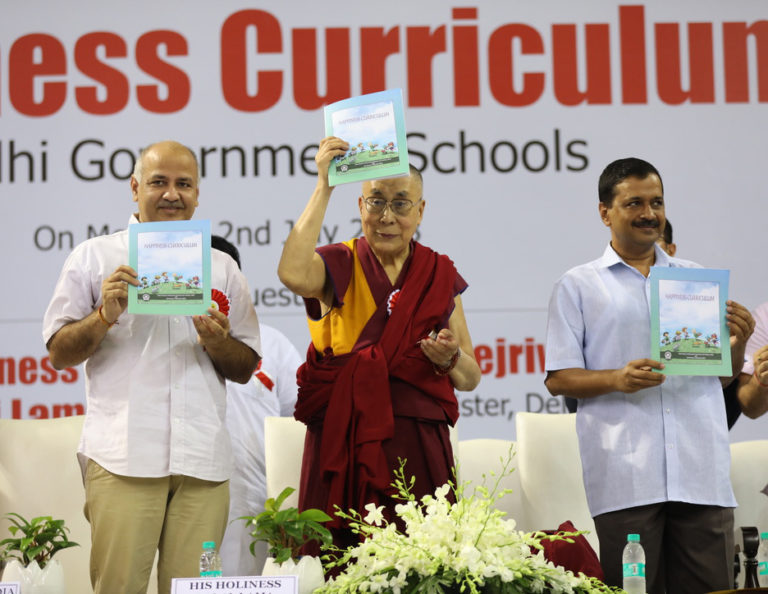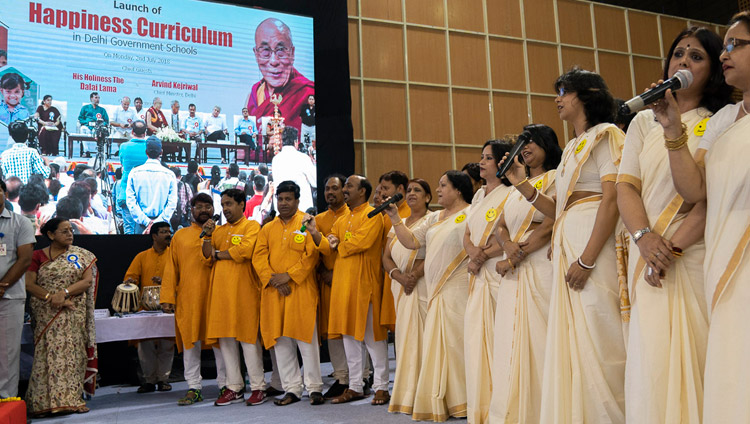
Photo: dalailama.com
India has initiated a programme across the capital to improve the mental wellbeing of students — His Holiness the Dalai Lama was there to launch it
His Holiness the Dalai Lama has launched a Happiness Curriculum, initiated by the Indian Government at the Thyagaraj complex on July 2. The Happiness Curriculum is aimed at improving the mental health and happiness of students, and was designed by a team of 40 government teachers and volunteers.
The curriculum will be introduced in 1,000 government schools in Delhi, comprising of over 800,000 students. His Holiness said of the initiative: “What is being started in Delhi schools can have an impact on the whole world. What we need today is an education of values, not based on any religion, but on common sense and scientific knowledge.”
His Holiness the Dalia Lama, along with the chief minister of Delhi, Arvind Jejriwal, and deputy chief and education minister Manish Sisodia launched the curriculum. Arjvind Kejriwal said that there could have been no better person to launch the programme than His Holiness the Dalai Lama and called it “a landmark day.” The new curriculum is to be introduced from nursery to class eight students, with daily 45-minute classes that will teach ethics, meditation, moral stories and mindfulness practice.

Photo: dalailama.com
More than 5,000 principals and teachers from Delhi public schools attended the inauguration function. On the same day, Adriaan Van Dis for Dutch television interviewed His Holiness about his visit to the Netherlands in September. During the interview, His Holiness spoke about anger, the gap between the rich and poor and history of exploitation of the poor by wealthy people. When asked about the anger expressed by young Tibetan writers, His Holiness explained that Tibet is not only physically occupied but also how the hardliner Chinese officials regard any expressions of Tibetan culture as separatism.
Adding to this His Holiness said: “There are also some who are angry with me because since 1974 I haven’t campaigned for independence. In terms of physical development, we can benefit from remaining with the People’s Republic of China, but we must be able to preserve our language and culture and protect the natural environment of our homeland. This last point is not only a matter of interest to Tibetans since Asia’s rivers rise on the Tibetan plateau and more than a billion people depend on the Tibet’s water sources.”




 Print
Print Email
Email